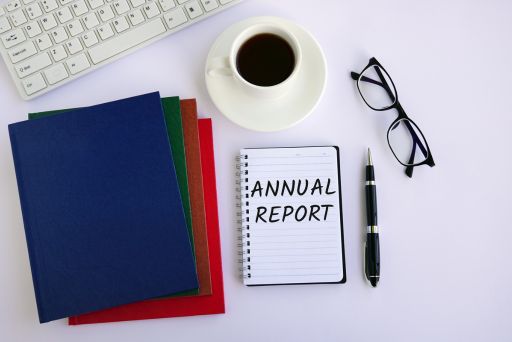Tax season is not only a great time to get your finances in order, but it’s also an opportunity to update other important information about yourself in the event of an accident, emergency, or death. While of course you hope nothing of the sort happens to you, it is always a possibility. Being prepared for the worst can help your friends and loved ones cope if difficult times were to beset you.

Here are a few quick tips on taking stock annually and being prepared for the unexpected:
- Review (or write) your will. Take the time to update your will if you’ve gained any new assets, if your executor or plans for guardianship for children or property have changed, or if you’d like to change your arrangements for money or property. If you haven’t written a will yet, it’s best to get that done as soon as possible.
- Go over your estate planning and power of attorney. Setting up your estate to minimize costs and taxes helps you and your beneficiaries. Talk to your accountant or attorney about this step. Power of attorney can bring peace of mind knowing that someone you trust and who you have acquainted with your wishes will be handling your affairs in case of an impairment or death. Complete the forms, either with your attorney or off the internet, and include them with your documents. You may also want to give your POA a copy.
- Make known any medical requests in the event of an accident or death. Give your specified DNR order, decide whether you’d like to be an organ donor, and make known any other medical requests you may have.
- Update a file of usernames and passwords for all of your accounts. You may not want your social media accounts going on long after you die, let alone your subscription-based services. Leave login info for all online accounts and instructions on what you’d like done with them in the event of your death.
- Include a balance sheet and income statement of your personal and business bank accounts. You’ll want your executor to know where these accounts are located and how to access them.
- Create a contact information sheet that includes people you work with, friends, and other acquaintances that your close family may not know about but who should be contacted in the event of an emergency.
- Store all of this information in a safe place. Some may feel comfortable with it in their homes, while others may choose to store it in a bank security box. Regardless of where it is stored, make sure it is safe, that someone you trust knows about it, and that it is accessible to the right person at the right time.
- Update your family emergency plan. This should include how the family will communicate with each other in case of a disaster, where everyone will meet, along with a phone tree, updated contact information for everyone, plans as to who will check on whom, and the like. It’s also helpful to have a code word known amongst the family to let one another know there is trouble, without letting the bad guy know.
- While you’re at it, go the extra mile for disaster planning. Refresh your 24 or 72-hour emergency kits in your home and car, and gather water storage or empty, clean, and refill existing water storage.

While this list may feel a bit overwhelming, it really doesn’t take very long to accomplish. Tackle it all at once, or take it one task at a time, but get it done. Having all of your important information updated and in once place will help you feel secure and ensure that you won’t leave a headache for anyone in the event of death or emergency.
Frequently Asked Questions
1. Why should I update my will during tax season?
Tax season is an excellent time to review and update your will because you’re already organizing your financial documents. If you’ve gained new assets, changed your executor, or want to adjust your guardianship or financial plans, updating your will ensures your wishes are accurately reflected and will save your loved ones from confusion later.
2. What is the benefit of reviewing estate planning and power of attorney annually?
Reviewing your estate planning and power of attorney ensures that your assets are managed efficiently, minimizing taxes and costs. Assigning a trusted person as your power of attorney gives peace of mind that someone familiar with your wishes will handle your affairs if you become incapacitated. Regular updates ensure that your plans remain in line with your current situation.
3. Why is it important to keep a record of usernames and passwords for all my accounts?
Having a record of your usernames and passwords allows your loved ones or executor to manage or close your online accounts in the event of your death. Without this information, managing digital assets, like social media and subscription services, can be time-consuming and challenging for your family.
4. How can I make my medical requests known in the event of an emergency or death?
To ensure your medical requests are honored, clearly document any specific wishes, such as a Do Not Resuscitate (DNR) order or organ donor status. Inform your family and healthcare provider about these decisions, so they are aware of your preferences in case of an accident or emergency.
5. Where should I store my important documents and emergency information?
Store all vital documents, including your will, estate plans, and emergency contact lists, in a secure location like a home safe or a bank security box. Ensure that someone you trust knows where they are and can access them in an emergency. Keeping these documents safe but accessible is essential for ensuring they are used when needed

